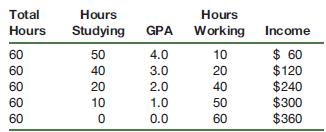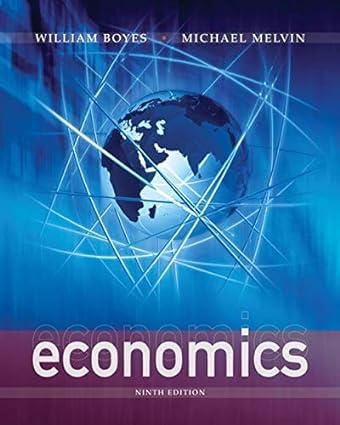Suppose a second individual has the following trade-offs between income and grades: a. Define comparative advantage. b.
Question:
Suppose a second individual has the following trade-offs between income and grades:

a. Define comparative advantage.
b. Does either individual (the one in exercise 4 or the one in exercise 5) have a comparative advantage in both activities?
c. Who should specialize in studying and who should specialize in working?
Data from in exercise 4
The following numbers measure the trade-off between grades and income:

• Calculate the opportunity cost of an increase in the number of hours spent studying in order to earn a 3.0 grade point average (GPA) rather than a 2.0 GPA. (Assume linear relationships.)
• Is the opportunity cost the same for a move from a 0.0 GPA to a 1.0 GPA as it is for a move from a 1.0 GPA to a 2.0 GPA?
• What is the opportunity cost of an increase in income from \($100\) to \($150\)?
Step by Step Answer:






